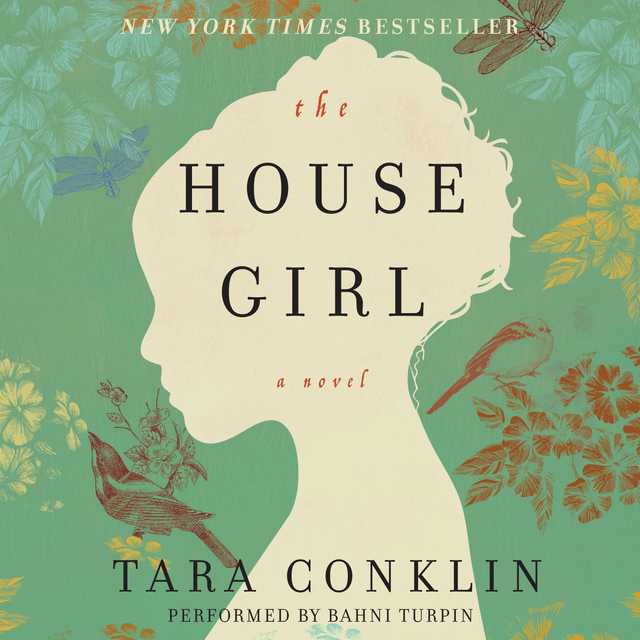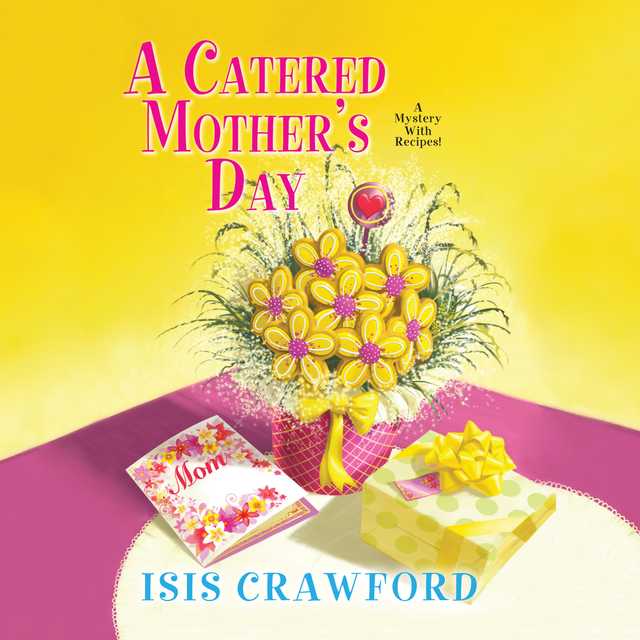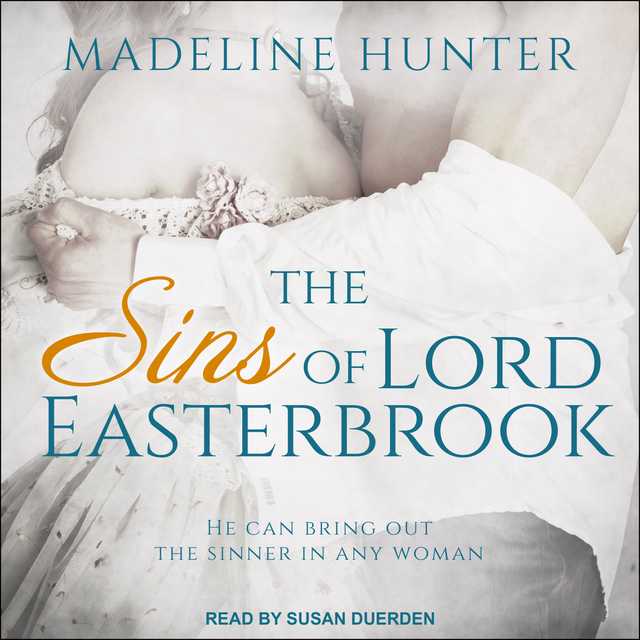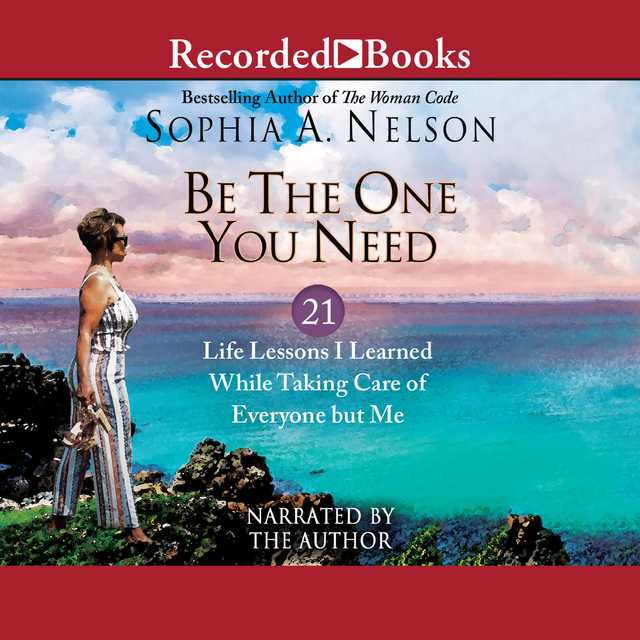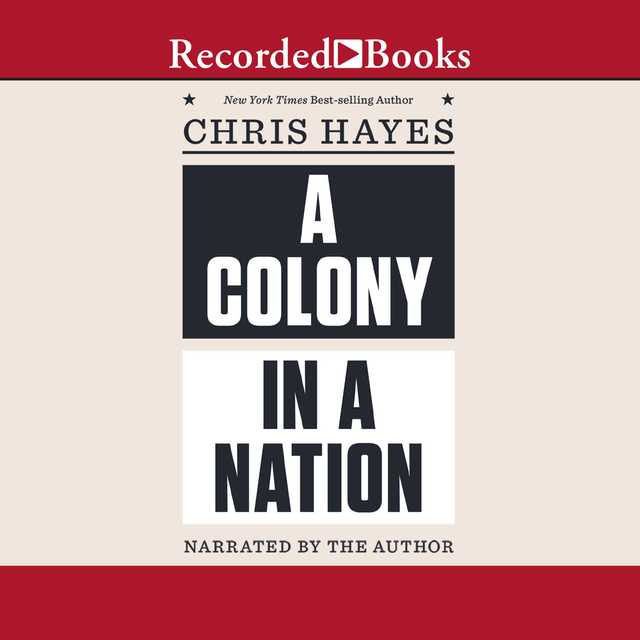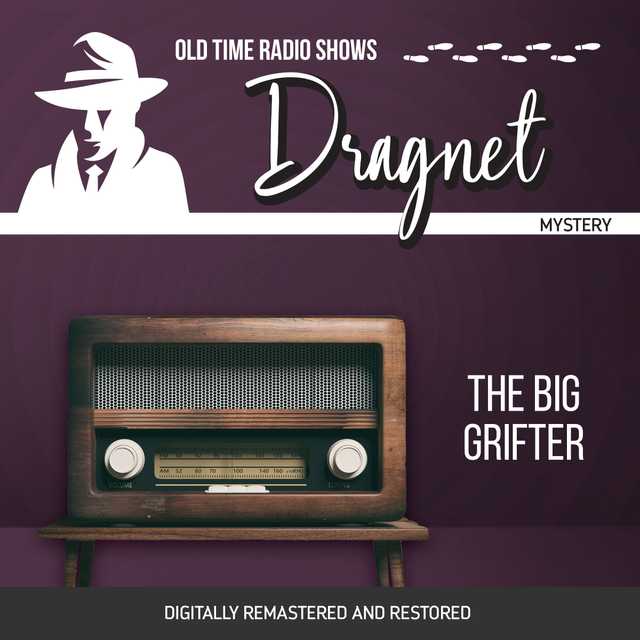The House Girl Audiobook Summary
The House Girl, the historical fiction debut by Tara Conklin, is an unforgettable story of love, history, and a search for justice, set in modern-day New York and 1852 Virginia.
Weaving together the story of an escaped slave in the pre-Civil War South and a determined junior lawyer, The House Girl follows Lina Sparrow as she looks for an appropriate lead plaintiff in a lawsuit seeking compensation for families of slaves. In her research, she learns about Lu Anne Bell, a renowned prewar artist whose famous works might have actually been painted by her slave, Josephine.
Featuring two remarkable, unforgettable heroines, Tara Conklin’s The House Girl is riveting and powerful, literary fiction at its very best.
Other Top Audiobooks
The House Girl Audiobook Narrator
Bahni Turpin is the narrator of The House Girl audiobook that was written by Tara Conklin
About the Author(s) of The House Girl
Tara Conklin is the author of The House Girl
More From the Same
- Author : Tara Conklin
- The Last Romantics
- Community Board
- Publisher : HarperAudio
- Abraham
- American Gods [TV Tie-In]
- Dead Ringer
- House of Sand and Fog
- Prey
The House Girl Full Details
| Narrator | Bahni Turpin |
| Length | 14 hours 42 minutes |
| Author | Tara Conklin |
| Category | |
| Publisher | HarperAudio |
| Release date | February 12, 2013 |
| ISBN | 9780062239877 |
Additional info
The publisher of the The House Girl is HarperAudio. The imprint is HarperAudio. It is supplied by HarperAudio. The ISBN-13 is 9780062239877.
Global Availability
This book is only available in the United States.
Goodreads Reviews
Angela M
May 16, 2014
It's hard to believe that this is a debut novel . Tara Conklin has beautifully written an emotional story of a young woman slave in Virginia in 1852 and skillfully connects that story to a young woman , an attorney living in present day New York City . She brings history to life with Josephine's story and we see the cruelties of slavery , the desire for freedom, and the courageous fight for it . I love the alternating narratives of Josephine and Lina and how Lina's story helps unfold the story of Josephine the artist . The writing is so good that you can almost see the paintings as they are described and almost feel what the characters feel.I have read a number of books recently which use the mechanism of alternating narratives of past and present and I really like it when the stories truly connect in an important way . The author has done just that . I was so taken with Josephine and I found Lina's story captivating as well. Josephine's story will break your heart but what Lina does to insure that Josephine's story is told is ultimately uplifting .
Laura
January 18, 2013
Full Disclosure: I went to high school with Tara but haven't seen her since we graduated.It was an odd experience to read a book by someone with whom I was a teenager. I spent the first few pages being overly judgmental about grammar and comma placement (Sorry, Tara!). But within about five or six pages it stopped being about High-School-Friend-now-Author Tara and all about the characters and the story.This first novel tells the powerful and compelling story of Josephine, a slave in Virginia in the mid-nineteenth century, and Lina, a young lawyer for a prestigious New York law firm in the present. Lina's firm has just taken on a case that will deal with slavery reparations, and Lina is searching for a descendent of slaves to act as the plaintiff. This will make an excellent book club pick or vacation read. Although the themes leave you with plenty to discuss, ponder, and contemplate, the story moves quickly and powerfully to its conclusion, essentially making it a fast read that will stick with you long after you finish it.
Mj
February 10, 2017
I very much enjoyed The House Girl. Tara Conklin has previously published short fiction but this is her first novel. I think Conklin is a great story teller and did a good job of fully utilizing her background in both history and law to really draw me into the book. The book is categorized as historical fiction and it also has a legal slant. It is the story of two young women, who share many similarities and grew up 150 years apart. Josephine was born in Virginia in about 1835, born a black slave who worked “inside” her Mistress’s home – hence the title “The House Girl.” Lina is the other young women in the story – living in New York City at a much later time in herstory, a recent graduate and first year law employee at one of the more prestigious law firms in New York City.The story is about both of their lives – two strong women with special talents and good intellects, both growing up without mothers from a very young age. They lived very different lives at very different times – one of privilege, one of servitude, one when slavery was legal, one when it was no longer openly legal. And yet, both women shared very important characteristics - big dreams and fierce determination.The House Girl is categorized as historical fiction and you will definitely gain a better understanding of the norm of cruelty, injustices, class structure and inequalities during this period of history. For this alone, the book is worth reading. However, there is also much mystery and suspense in the story, along with romance, psychology and philosophy. The book provides a lot of information on slavery and the Underground Railroad System in particularl, which began in the Southern U.S. states and continued north to the Northern U.S. States and Canada. Conklin definitely piqued my interest in learning more, particularly since several exits to the freedom trail that the slaves risked their lives for are so close to where I live. There is also a parallel story about the dog eat dog; climb to the top, the client is right – no matter the ethics of an elite global law firm and in the end “what is really important in life” and “what is it all about.” Depending on the person and the situation freedom has many different permutations – all equally important to specific individuals.The House Girl was a page turner that was touching and had a soul. Tara Conklin is a great story teller and The House Girl is well worth reading.
Tara
February 09, 2013
“Tara Conklin’s wise, stirring and assured debut tells the story of two extraordinary women, living a century apart, but joined by their ferocity of spirit. From page one, I fell under the spell of THE HOUSE GIRL’s sensuous prose and was frantically turning pages until its thrilling conclusion.” - Maria Semple, author of Where’d You Go, Bernadette“THE HOUSE GIRL is an enthralling story of identity and social justice told through the eyes of two indomitable women, one a slave and the other a modern-day attorney, determined to define themselves on their own terms.” - Hillary Jordan, Author of Mudbound and When She Woke“There’s so much to admire in THE HOUSE GIRL – two richly imagined heroines, two fully realized worlds, a deeply satisfying plot – but what made me stand up and cheer was the moral complexity of these characters and the situations they face. I’m grateful for this transporting novel.” - Margot Livesey, author of The Flight of Gemma Hardy“THE HOUSE GIRL is a heartbreaking, heartwarming novel, ambitious, beautifully told, and elegantly crafted. Tara Conklin negotiates great vast swaths of time and tribulation, character and place, with grace, insight, and, simply, love.” - Laurie Frankel, Author of Goodbye for Now and The Atlas of Love“Tara Conklin’s powerful debut novel is a literary page-turner filled with history, lost love, and buried family secrets. Conklin masterfully interweaves the stories of two women across time, a runaway slave in 1852 Virginia and a young lawyer in present-day New York, all while asking us to contemplate the nature of truth and justice in America.” Amy Greene, Author of Bloodroot“THE HOUSE GIRL stands as both a literary memorial to the hundreds of thousands of slaves once exploited in the American South and a mellifluous meditation on the mysterious bonds of family, the hopes and sorrows of human existence, and the timeless quest for freedom.” Corban Addison, Author of A Walk Across the Sun“THE HOUSE GIRL is a rarity, a novel that succeeds in fulfilling the highest of aspirations. The juxtaposed stories of a slave girl in 1852 and a lawyer in 2004 combine to create a beautiful examination of freedom, identity, family, desire and obligation. This work is absorbing, enthralling, stimulating and provocative and almost guaranteed to be read in one sitting.” - Bill Cusumano, Nicola’s Books,Ann Arbor, Mi.“Art connects people to truth hidden by time in this powerfully woven story… Told in both the 1800s and present day, this story is a literary exploration of truth and reminds us that it is what we choose to do in any given situation that makes us who we are.” - Kimberly Daniels, The Country Bookshop, Southern Pines, North Carolina
Melissa
July 31, 2013
What an incredible book! Set simultaneously in 1850s Virginia and New York City (2004) and telling the stories of slave-girl Josephine and lawyer Lina, this may be the best dual-period book I’ve ever read. Debut author Tara Conklin weaves two separate stories together like a beautiful tapestry, the past and the present blended artfully and skillfully.This is a story about art, and the power of brushstrokes to heal broken hearts from different worlds, different time periods. It’s a story about interpretation of facts, of feelings, of the heart. A story about truth. About lies. About freedom. About hopes and dreams and wishes and failings and triumphs and heartbreak. About justice. About evil.I can’t say enough about this debut novel that had me flipping pages at a frantic pace. Conklin created a rollercoaster of emotional tension revealing, chapter-by-chapter, the threads gently connecting one story to the other, the parallels often uncanny and enthralling. And the characters, as they sometimes made bad or dangerous decisions, had me biting at my nails.Part epistolary, part historical and part contemporary, this story of a young ambitious lawyer who finds herself assigned to a groundbreaking reparations case for descendants of American slaves takes on personal meaning she never could have expected. In many ways, this story felt like a Russian nesting doll in its complexity: stories within stories within stories, all compelling and revealing.And, perhaps one of my favorite things about this literary gem: it offers a sensory feast. The passages are lyrical, beautiful, and often evoke frightening, palpable images, transporting the reader to antebellum Virginia and bustling Manhattan. Just a few examples of the sights, sounds, and imagery you might expect that pull you right into the narrative, standing shoulder-to-shoulder with the characters:“The air hung heavy over the road and the dry, yellowed grass began to shimmer as it did in the hottest part of the day, the sun casting it to buckle and bend. Josephine’s heart knocked hard against her chest and she felt a snaking poison in her blood that worked with the heat upon her muscles and her mind like a drug of dismay.”Or … “He grinned at her, his mouth a graveyard of dark space and gray stone.” – this haunting description of a young slave boy affixed to a yoke in a field.Somehow – and I’m not sure how she did it – Conklin pieces together an intricate puzzle of the past and present and doesn’t, for a moment, decrease the tension of the beautiful narrative. Highly recommend.
Virginia
November 06, 2012
My review is based on the soft back edition of this book which I received free from the publisher as an “Advance Readers Edition” in exchange for the promise that I would write a review. Unlike many books where it takes several chapters before you are drawn into the story, I was immediately captivated by this book. The primary message in the book for me was the comparison between the hopes and dreams of two girls. One was a modern day smart young white female lawyer raised by a single father who thought she knew who she was and what she wanted but found that true satisfaction laid elsewhere. The other girl was a young gifted black girl raised as a “thing” on a Virginia plantation who had never been beyond the gates of the Virginia plantation but had an inner desire to be “free” even while having no concept of what being free would actually consist of. Surprisingly, or maybe not so surprisingly, these two women had much in common. There were a multitude of the examples of how horribly the slaves were treated during those days – I thank God that this era of slavery is behind us. There were also hints at the various ways people of today are actually enslaved by controlling things and people. In addition, the novel explored the pros and cons of the question of whether we Americans in 2012 still owe the black people “back pay” for the contributions made by their forefathers in building this great country we all live in. The two primary characters were very well developed and I could relate to both of them. Unfortunately, I never was able to dive into the mind of some members of the supporting cast. For instance, it would have been interesting to know what really drove the plantation owner. I concluded that a series of failures had made him a bitter and brutal person and I think his reactions were sadly true to life when our dreams fall apart, but I wished I had been able to explore some of his mental processes. The book was an easy read with a somewhat simple plot but hidden within the tapestry of the plot are several diverse threads that provide insights into the different ways that we humans are wired by God to live and think. I think it would be a great book discussion group pick - there are many ares fertile for discussion.
Sharon
September 13, 2020
Two women in the book, Josephine a negro slave and Lina, a New York lawyer present day are the heroines in this story during the 1800's in Virginia.As a young girl Josephine was brought into the home by her owner's the Bells. Lu Ann Bell taught her to read and take care of the house. Lu Ann was an artist and taught Josephine art. Josephine took up drawing and painting. Her subjects were those around her and what she saw on a daily basis.When she finally made her escape to Philadelphia, she had to leave her four year old son behind.She died in Philadelphia a sad and untimely death.Lina Sparrow, was working on a case that would reimburse black people that were related to Josephine for her art work.Lina met Jasper Battle at an art show and mentioned her interest in art and the paintings of Josephine. Jasper had some of her paintings in his parents home. He said they had been in the family for a long time.Lina traveled to Virginia to the Bell center to get more proof of who the paintings belonged to.A meeting was set up with the law partners, herself and Jasper Battle. Lina had all the proof she needed.When the lawyers saw Jasper Battle, they said "He is not Black enough". Right then and there the case was dropped.Lina calmly said to her boss "I quit"and left the law practice.A captivating story.
Tara
February 12, 2013
You'd think that with all the historical stories out there about the evils of slavery, about slaves trying to be free, of the plight of the early African Americans, you'd think you'd read it all by now. What could one more author add to it?A lot.This one touched me in a way that many others haven't. Looking back now that I've turned the last page, I am trying to pinpoint what it exactly what it was that really hit me hard, and I'm not sure. Josephine...has lived a live of heartache. She's an item, slapped when the "master" feels like slapping her, used sexually on another's whim, not given a choice or say in anything. The one joy in her life, art, is even stolen from her by her "mistress" who despite her claims to be sorry, stands there and takes credit for the paintings and drawings done by her slave, Josephine. And this continues long after her death.The story doesn't reveal a whole lot about her, really, even though we follow her at times. Some of Josephine's tale is told by others, people who didn't even know her, yet her story kept continuing in my mind long after I turned the Kindle off. I cried for her. I so badly wanted her to find joy, but the story ends realistically. It doesn't throw a tied up with a bow happy ending at us. It's life. Somehow the ending the author chose resonated with me even more.Full review on Book Babe: http://wwwbookbabe.blogspot.com/2013/...
Carol
November 29, 2013
The author weaves together the story of Josephine, an enslaved house girl from Virginia before the Civil War and Lina Sparrow, young lawyer assigned to a class-action suit claiming reparation for the descendants of slaves. Lina’s search for a qualified slave descendant (to be the plaintiff) leads her to Josephine, who may have been the actual artist of famous paintings attributed to her plantation mistress.Josephine’s heart-rending and demoralizing story is slowly revealed through Lina’s search of historical records and letters written during Josephine’s time period. I’m fascinated with anything about genealogy, family trees and family history records so I really enjoyed this book. There were two parallel storylines and both were most intriguing. The story of Josephine is richly told historical fiction and Lina’s account of her search for Josephine's descendants made for a compelling whodunit.
Jane
April 10, 2013
Unable to get the book in Australia, I was so pleased when at last it arrived in the post. A beautiful hard cover with high quality wrap around and beautiful graphics. The narrative itself is captivating. Tara Conklin immerses her 21st century protagonist in the 1800s world of slavery; in particular, in the world of a woman whose spirit and talent would not be silenced. The characters and their lives are complex and have been tightly and realistically constructed for the reader. I have loved the last three days where I have made myself put the novel down so I could keep saving some for later. Sadly now, I have finished but it was a great journey.The House Girl will sit with my other favourite novels of similar focus such as Someone Knows My Name by Lawrence Hill, The Last Runaway by Tracey Chevalier and - the best - The Help by Kathryn Stockett.Friends are welcome to borrow my copy as I don't know if it is yet available here.
Elizabeth of Silver's Reviews
February 11, 2013
From 1852 to 2004....from one artist to another....from a farm in Virginia to the hustle and bustle of New York City.THE HOUSE GIRL flawlessly switches between these two time periods telling of the life of Josephine, a slave girl, Lina, a New York City attorney, and Lina's father, Oscar, an artist. The book leads you through the life of Josephine as she struggles with her decision to "run, it leads you through the life of Lina who is researching families who may benefit from wrong doing during the period of slavery in the United States, and it leads you through the life of Oscar trying to make amends through his artwork. The most significant question, though, along with finding descendants is that of who really did create the paintings found in Lu Anne Bell's home? Was it really Lu Anne or was it Josephine? Corresponding with this painting mystery and the mystery of Josephine's descendants is that of Lina's mother...what really did happen to her when Lina was only four? You will get caught up in both stories because of the great detail Ms. Conklin uses and because of the research. I love "digging" for historical information. As you switch between the two stories, you will ask yourself to choose which life you were more interested in....Lina's or Josephine's....it may be difficult to choose since both were appealing and drew you in, but for me Josephine's story wins hands down for interest.It took a few chapters, but you will become so involved, it becomes difficult to stop reading....you want to know what will become of the characters and the answer to the mysteries.Each character comes alive with the vivid detail Ms. Conklin uses, and she puts their feelings out in the open...you can feel the tension, the pain, the frustration, the longing, and the fleeting happiness they experience. I really enjoyed this book because of the history and the research and of course the detailed descriptions of the characters.The historical aspect and the fact-finding kept me up late. It is very interesting how the farm's kitchen records, crop records, and births and deaths of every person including the slaves was kept. I thoroughly enjoy these types of findings. I also wonder how these records were not destroyed and who would have thought to preserve them. Such foresight....something to be grateful for. Don't miss this book especially if you are a historical fiction buff. This book pulls you in and will cause you to pause and reflect on the human race and have you wondering about the reasons why we do what we do, have you wondering what the reasons are that lead us to make the choices we make, and have you wondering about the reason we turned out to be the person we are. 5/5This book was given to me without compensation by the publisher in return for an honest review.
Lenore
August 16, 2013
Great book by an obviously very intelligent writer.
Kelis
October 26, 2013
The House Girl by Tara Conklin follows an enslaved house girl, Josephine and young lawyer, Lina. Alternating chapters, their stories are juxtaposed against one another--the events leading up to Josephine's escape from slavery in 1800's Virginia and the the events leading up to an escape of sorts for modern day New York City attorney, Lina, as she seeks to find a descendant of Josephine as potential plaintiff in a class action lawsuit against the U.S. government for reparations. Josephine tends to an ailing, barren woman and her aging husband on a Virginia plantation nearing it's demise. The field hands, including the loving couple who raised Josephine as their own until she was moved into the slave owner's house, are aging and no new slave purchases are being made. Josephine makes these and other observations as she spends time between the house and the slave quarters and captures images of her beloved friends and the plantation with paint and canvas. Her mistress paints to pass the time and allows Josephine paint and materials to create her own works of art. The author does a decent job of conveying the harsh realities of slavery and what a young slave girl's inner world might have been like as she worked up her resolve to run. Lina is a bright young lawyer and daughter of a famous artist. Her search for a plaintiff for her case leads her to an art showing of paintings believed to have been painted by the house girl, Josephine, but with no proof, credit for the works are given to the mistress of the plantation. It's at the art showing that Lina decides she would find Josephine's descendants. Losing her mother as a toddler, and having only fragments of memories and her father's stories of her mother, Lina's mother is a mystery to her. She learns from friends of her mother's that she looks very much like her--dark hair, olive skin, Latino heritage maybe? She wondered because her mother named her Carolina, pronounced caro-lee-na, even though they are an English-speaking family. Eventually she begins to see that she has been deliberately kept in the dark about the details of her mother's life by her father's design. While piecing together Joesphine's past, Lina finds herself also piecing together her own. When the reparations case came up, I braced myself. Tara Conklin, the author, is not a black person. Frankly I wasn't sure how she would handle the subject. I was relieved as I read about the powerful black business man behind the lawsuit, and his desire not to win the case, but to force the country to have the conversation. He desired acknowledgement of the hard work that slaves did to build this country and wanted the government to apologize and to pay up, not with checks in the mail to every brown citizen, but in monuments and community enrichment programs and a wall listing every name of every slave who died building the wealth that gave some of America's wealthiest families their riches. He wanted to open the books. He wanted a reckoning. He made his motives clear to Lina and her partner in an awesome bit of dialogue early on in the book. That got me excited. After that, I was like, okay Tara, let's see what you got here. This book is beautifully written. Every character is richly developed. There's a side-story woven in about a family that helps on the Underground Railroad that is told almost completely in letters of correspondence that Lina finds in archives, and it had me turning pages so hard. Then there was one single unsent letter from the archives near the end of the book that spans about fifty pages that gave me so much life, y'all. The descriptions of the artwork in this book were so vivid that I feel like I'd recognize them if I ran across them. It would be so cool if an artist were to create the paintings in this book and hold a real exhibit in New York City. I can't imagine such a thing has never happened before. If it hasn't, let's hope an adventurous artists runs across my suggestion. While I'm on the topic of making this book live and breathe, with Lina's story set in modern day New York City, and Josephine's in the antebellum south, this book begs for a screenplay with amazing flashbacks. In the right hands, it could be an amazing film.
Most Popular Audiobooks
Frequently asked questions
Listening to audiobooks not only easy, it is also very convenient. You can listen to audiobooks on almost every device. From your laptop to your smart phone or even a smart speaker like Apple HomePod or even Alexa. Here’s how you can get started listening to audiobooks.
- 1. Download your favorite audiobook app such as Speechify.
- 2. Sign up for an account.
- 3. Browse the library for the best audiobooks and select the first one for free
- 4. Download the audiobook file to your device
- 5. Open the Speechify audiobook app and select the audiobook you want to listen to.
- 6. Adjust the playback speed and other settings to your preference.
- 7. Press play and enjoy!
While you can listen to the bestsellers on almost any device, and preferences may vary, generally smart phones are offer the most convenience factor. You could be working out, grocery shopping, or even watching your dog in the dog park on a Saturday morning.
However, most audiobook apps work across multiple devices so you can pick up that riveting new Stephen King book you started at the dog park, back on your laptop when you get back home.
Speechify is one of the best apps for audiobooks. The pricing structure is the most competitive in the market and the app is easy to use. It features the best sellers and award winning authors. Listen to your favorite books or discover new ones and listen to real voice actors read to you. Getting started is easy, the first book is free.
Research showcasing the brain health benefits of reading on a regular basis is wide-ranging and undeniable. However, research comparing the benefits of reading vs listening is much more sparse. According to professor of psychology and author Dr. Kristen Willeumier, though, there is good reason to believe that the reading experience provided by audiobooks offers many of the same brain benefits as reading a physical book.
Audiobooks are recordings of books that are read aloud by a professional voice actor. The recordings are typically available for purchase and download in digital formats such as MP3, WMA, or AAC. They can also be streamed from online services like Speechify, Audible, AppleBooks, or Spotify.
You simply download the app onto your smart phone, create your account, and in Speechify, you can choose your first book, from our vast library of best-sellers and classics, to read for free.
Audiobooks, like real books can add up over time. Here’s where you can listen to audiobooks for free. Speechify let’s you read your first best seller for free. Apart from that, we have a vast selection of free audiobooks that you can enjoy. Get the same rich experience no matter if the book was free or not.
It depends. Yes, there are free audiobooks and paid audiobooks. Speechify offers a blend of both!
It varies. The easiest way depends on a few things. The app and service you use, which device, and platform. Speechify is the easiest way to listen to audiobooks. Downloading the app is quick. It is not a large app and does not eat up space on your iPhone or Android device.
Listening to audiobooks on your smart phone, with Speechify, is the easiest way to listen to audiobooks.

